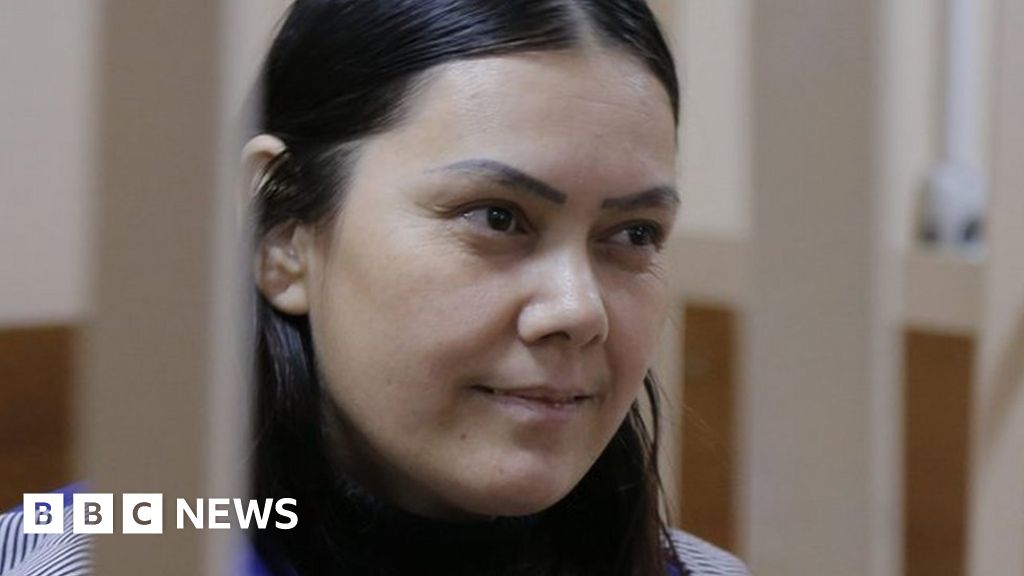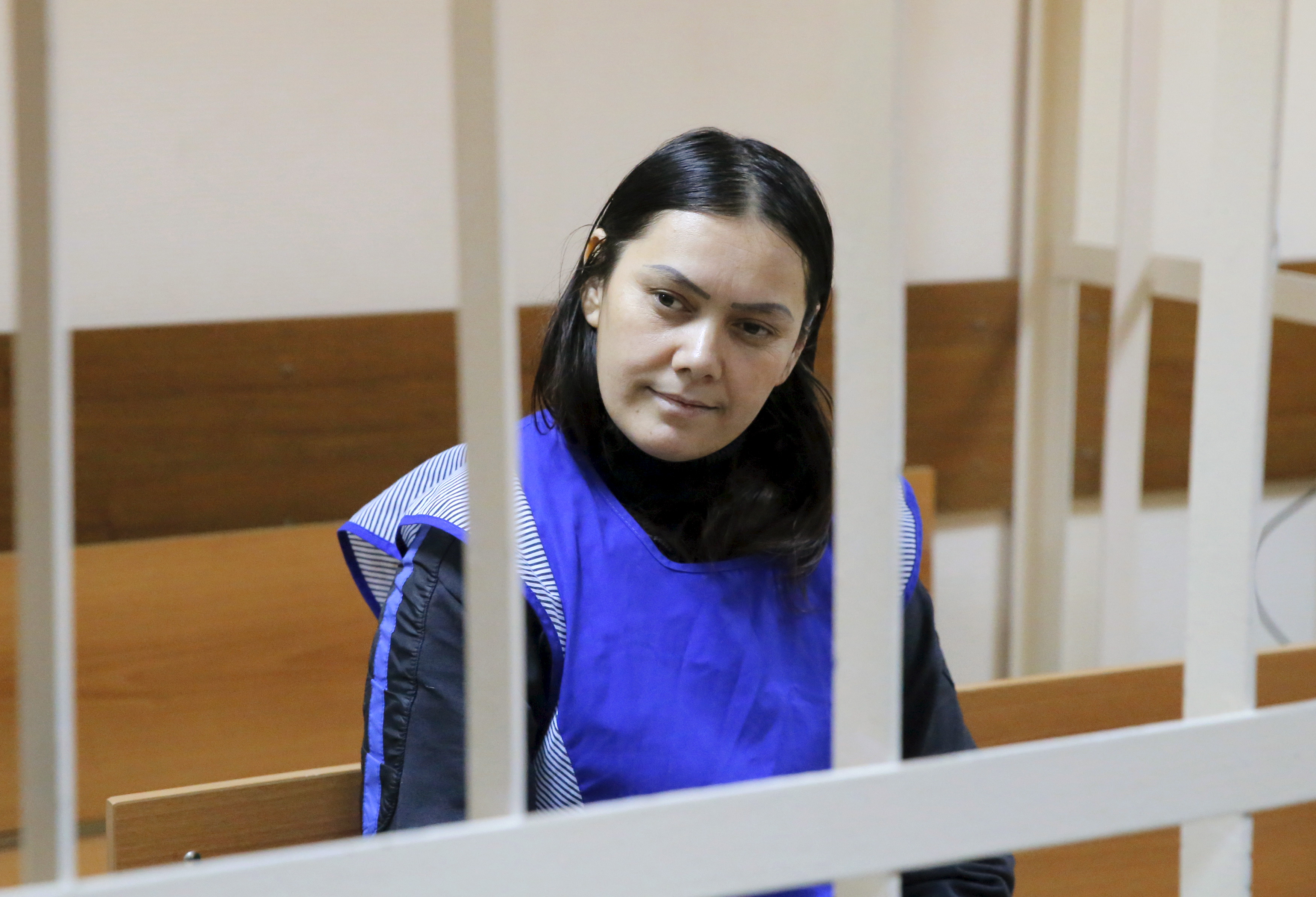Gulchekhra Bobokulova: The Nanny Case That Shocked The World
How can a seemingly ordinary individual commit an act so unspeakable that it shakes the very foundations of society? The case of Gulchekhra Bobokulova serves as a chilling reminder of the fragility of the human psyche and the devastating consequences when it shatters.
In 2016, the world was horrified by the actions of Gulchekhra Bobokulova, a 38-year-old nanny from Uzbekistan, who was arrested in Moscow for the brutal murder of a young child in her care. The details of the crime were gruesome: Bobokulova decapitated four-year-old Anastasia "Nastya" Meshcheryakova, set fire to the apartment, and then paraded the child's head near a Moscow metro station, screaming that she was a terrorist. The images and videos that emerged were deeply disturbing, leaving an indelible scar on the collective consciousness. The crime transcended mere violence; it was an act that probed the darkest depths of human depravity, raising uncomfortable questions about mental health, societal vulnerabilities, and the potential for unimaginable horror lurking beneath the surface of everyday life. This single act cast a long shadow, forcing a re-evaluation of the safeguards in place to protect the most vulnerable and the underlying conditions that can lead to such extreme acts of violence.
Full Name Gulchekhra Bobokulova Date of Birth Circa 1978 (Age 38 in 2016) Place of Birth Uzbekistan Nationality Uzbek Religion Muslim Family Mother of three children Occupation Nanny Criminal Case Murder of Anastasia Meshcheryakova Mental Health Reportedly diagnosed with schizophrenia in 2003 Legal Status Convicted and sentenced to compulsory psychiatric treatment Reference BBC News Report
The chilling timeline began on the morning of February 29, 2016. Bobokulova waited for Anastasia's parents and older sibling to leave their Moscow apartment. It was then that she committed the heinous act: strangling the young girl, decapitating her with a knife, placing the head in a bag, setting fire to the apartment, and fleeing with the severed head. The act was not impulsive. It was a calculated sequence of horror, a descent into unimaginable cruelty. The image of Bobokulova, dressed in black and a hijab, brandishing the child's head near a metro station, shouting "I am a terrorist," became an emblem of inexplicable evil. The sheer audacity of the act, the public display of such unspeakable violence, sent shockwaves across the globe, sparking a maelstrom of fear, outrage, and disbelief. It forced a global reckoning with the potential for even the most trusted individuals to harbor monstrous intentions.
- 2024s Biggest Kannada Films Box Office Hits Movierulz Impact
- Vegamovies Nl Is It Safe Risks Legal Alternatives 2024 Guide
Reports quickly surfaced suggesting that Bobokulova had a history of mental illness. Officials indicated that she had been diagnosed with schizophrenia in 2003. News outlets from Uzbekistan corroborated this information, painting a picture of a woman struggling with severe psychological issues. However, the question remained: how could someone with such a documented history of mental illness be entrusted with the care of a vulnerable child? The tragedy ignited a fierce debate about the screening processes for childcare providers, the responsibility of agencies and families to conduct thorough background checks, and the adequacy of mental health care systems in identifying and treating individuals with potentially dangerous conditions. The incident exposed the gaps in the safety nets designed to protect children, highlighting the dire need for improved vigilance and resources.
The immediate aftermath of the crime was marked by a media blackout in Russia. While bloggers and independent media outlets circulated videos and accounts of the incident, state-controlled media largely ignored the story. This silence fueled speculation and mistrust, with many accusing the government of attempting to suppress information to avoid stoking public unrest or tarnishing the country's image. The censorship only served to amplify the horror and outrage, as people turned to alternative sources to piece together the details of the tragedy. The disparity between the official silence and the widespread online dissemination of information underscored the growing tension between state control and the free flow of information in the digital age.
As the investigation unfolded, disturbing details emerged about Bobokulova's personal life. Some reports suggested that the murder was motivated by her husband's infidelity, although Bobokulova herself failed to provide a coherent explanation for the connection between the child and her marital problems. There were also unconfirmed rumors that she was under the influence of drugs at the time of the crime. These conflicting narratives added to the confusion and horror, making it difficult to understand the underlying factors that drove Bobokulova to commit such a heinous act. The lack of a clear motive only deepened the mystery, leaving investigators and the public grasping for answers in the face of unimaginable brutality.
The legal proceedings against Bobokulova were swift and decisive. A Moscow court approved her arrest, and prosecutors indicated that they believed she had been incited to commit the murder by others. This raised the possibility of a larger conspiracy, prompting further investigation into potential accomplices or masterminds behind the crime. However, these leads ultimately proved inconclusive, and Bobokulova was eventually deemed to be solely responsible for the murder. Despite her initial claims of being a terrorist, investigators found no evidence to link her to any extremist groups. The focus shifted back to her mental state, with experts concluding that she was suffering from an acute psychotic episode at the time of the crime.
During her court appearances, Bobokulova exhibited erratic and disturbing behavior. She begged the decapitated toddler's mother for forgiveness, while also making bizarre and incoherent statements. Her demeanor fueled the perception that she was deeply mentally unstable, reinforcing the argument that her actions were the result of a severe psychological breakdown. The court ultimately ruled that she was not criminally responsible for her actions due to her mental state, and she was sentenced to compulsory psychiatric treatment. This decision sparked controversy, with some arguing that she should have been held fully accountable for her crime, while others maintained that her mental illness absolved her of criminal culpability. The case reignited the debate about the intersection of mental health and criminal justice, raising fundamental questions about how society should deal with individuals who commit violent acts while suffering from severe mental illness.
The Meshcheryakov family, understandably, was devastated by the loss of their daughter. They challenged the court's ruling, arguing that Bobokulova should have been held more accountable for her actions. The parents' grief was compounded by the media blackout and the conflicting reports surrounding the case. They struggled to make sense of the tragedy, seeking justice for their daughter while grappling with the profound emotional trauma of her murder. Their experience highlighted the often-overlooked plight of victims' families in high-profile criminal cases, underscoring the need for greater support and resources to help them cope with the aftermath of violence.
The case of Gulchekhra Bobokulova prompted widespread soul-searching in Russia and beyond. It exposed vulnerabilities in childcare screening processes, mental health care systems, and media control. It raised difficult questions about the responsibility of individuals, families, and governments to prevent such tragedies from happening again. While the details of the crime were unique in their horror, the underlying issues were not. The case served as a stark reminder of the importance of addressing mental health stigma, improving access to mental health care, and strengthening safeguards to protect vulnerable members of society. It also underscored the need for greater transparency and accountability in the media, particularly in cases involving sensitive or potentially inflammatory information.
Even years later, the name Gulchekhra Bobokulova evokes a sense of revulsion and disbelief. The memory of her crime remains a haunting reminder of the darkness that can lurk within the human psyche. The case continues to be studied and debated by psychologists, criminologists, and policymakers, as they seek to understand the complex factors that contributed to this tragedy and to develop strategies to prevent similar incidents from occurring in the future. The legacy of Gulchekhra Bobokulova is not just one of horror, but also one of reflection, prompting a continuous re-evaluation of the values, systems, and safeguards that underpin a just and compassionate society.
The initial reports identified the woman as Gulchekhra Bobokulova from Uzbekistan. She had arrived from Uzbekistan seeking employment. According to information from Lifenews sources, she could not articulate how the child was connected to her husband. Another source within police authorities suggested to Interfax that the woman may have been drugged. Gulchekhra Bobokulova, a 38-year-old Muslim mother of three, made these statements to journalists while en route to her court appearance in Moscow.
Video footage surfaced, appearing to show the police interrogating her, though the origin of the video remained unclear. On Wednesday, March 2, 2016, Gulchekhra Bobokulova, a nanny from Uzbekistan, was seen in a Moscow courtroom. She also appeared in court, seemingly unconcerned about facing criminal charges. In a video disseminated by bloggers and independent Russian media outlets this Thursday, Gulchekhra Bobokulova, the 38-year-old Uzbek nanny responsible for the child's decapitation, was featured.
Before a Moscow court approved Gulchekhra Bobokulova's two-month arrest, prosecutors informed the court that they believed individuals had "incited" her to commit the murder. Reports from Uzbekistan indicated that Bobokulova had a history of schizophrenia. Officials suggested she had been diagnosed with schizophrenia in 2003.
In 2024, Gulchekhra Bobokulova's name has resurfaced, reigniting the horrific memories of her 2016 crime. Recent developments have sparked discussions about her psychological evaluation, the criminal justice system, and possible systemic failures that allowed the tragedy to occur. This case shook the world. Bobokulova brutally killed Anastasia (Nastya) Meshcheryakov, the girl she cared for, and then paraded her severed head while screaming.
In the wake of the murder, the girl's parents contested the court's ruling that the nanny, who had lived with their family for several years, should not face criminal charges. Bobokulova was arrested on Monday after being seen carrying the child's severed head. Bobokulova was carrying the child's severed head, screaming that she was a terrorist and threatening to blow herself up. She was detained outside a Moscow metro station on the morning of February 29. Bobokulova, 38, was detained in Moscow on February 29, dressed in black and a hijab, holding up the child's head and shouting, "I am a terrorist."
It was reported that the woman, identified by Lifenews as Gulchekhra Bobokulova from Uzbekistan, committed the murder because of her husband's betrayal. AP Russia has been conducting airstrikes against opposition fighters. Este caso conmocion al mundo, Bobokulova mat brutalmente a la nia que haba cuidado, Anastasia (Nastya) Meshcheryakov, y luego se llev la cabeza gritando. Gulchekhra Bobokulova, musulmana de 38 aos y madre de tres hijos, formul esas declaraciones a periodistas de camino a su comparecencia ante un tribunal en Mosc.
- Kannada Movies 2025 Reviews Cast Where To Watch Legally
- Movierulz Kannada 2023 Risks Where To Watch More

Uzbek nanny admits beheading child in Moscow BBC News

Moscow Nanny Admits to Decapitating 4 Year Old Child TIME

Moscow nanny cites Syria revenge after beheading child